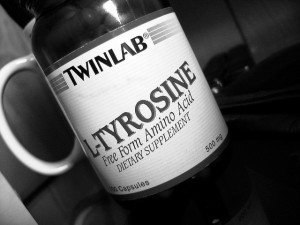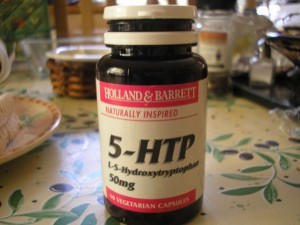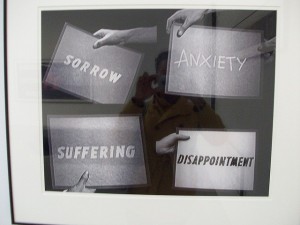
Life is pretty hectic these days and not always easy. Worries over money, jobs, the economy, scary world events, plus making ends meet at home, can make it difficult for people to cope.
According to Mind UK, one in four people in the UK will suffer from some form of mental health issue each year, with mixed depression and anxiety being particularly prevalent.
The Anxiety and Depression Association of America says that major depressive disorder is the biggest cause of disability, and nearly a half of all people diagnosed with depression also have an anxiety disorder.
More and more research is being done on nootropics, and while they are primarily intended as cognitive enhancers, certain supplements have been found to help alleviate depression and other mood problems without adding additional complications.
I’ve already written a piece on Nootropics For Anxiety, but let’s also take a look at what nootropics might help to tackle depression.
Page Contents
What Causes Depression?

Depression can have many psychological causes such as abuse, trauma or personal hardship, but it can also be caused by chemical imbalances in the brain. People with depression may be suffering from hormone deficiencies, as a result of ageing, environment or genetics. Such deficiencies cause poor mood, feelings of hopelessness, problems with communication and difficulty dealing with problems.
Traditional anti-depressants concentrate on balancing the levels of serotonin in the brain as do some nootropics; others, however, concentrate instead on the neurotransmitter dopamine. Low levels of dopamine are also dangerous and can cause listlessness, poor energy and lack of ambition, so boosting or balancing the levels can also reduce depressive symptoms.
The first natural nootropic that I want to recommend for depression focuses on tackling dopamine. L-Tyrosine is growing in popularity as a natural and effective treatment for depression.
Before I talk about it in detail, let me issue my caveats. If you find yourself suffering from clinical or severe depression, I’d recommend you visit the doctor. You may need stronger medication or help than nootropics can offer.
If you are suffering from mild or occasional depressive symptoms, or are looking for a mood booster, however, it might be worth trying nootropics. They may help you to avoid the need for traditional medication. You may even be able to take nootropics alongside traditional medication or therapy, but please do check with your doctor.
Natural Nootropics for Depression
L-Tyrosine

L-Tyrosine is an amino acid that is used by the body to synthesise dopamine. It nourishes the adrenal glands which produce dopamine and epinephrine, ensuring effective health and function. Increasing levels of dopamine can boost pleasure, reward, mental energy, appetite, motivation and more, all of which can help tackle depressive episodes.
L-Tyrosine also aids the balance of norepinephrine, the chemical that controls stress and mood. Not enough norepinephrine and anxiety and physical stress can run unchecked; too much, however, causes an even greater perception of stress. L-Tyrosine is valuable because it encourages a steady re-uptake of norepinephrine, helping to balance levels of the hormone.
You can gain some L-Tyrosine from food sources, such as dairy foods, poultry and nuts, but supplementation is often useful and needed for more extreme cases. It can make life more manageable in the long and short term, offering a shift in energy and mood. There is also some evidence that taking L-Tyrosine daily may stave off mild depressive episodes before they happen, especially if taken alongside other nootropics in stacks such as Alpha Brain. Note that there is no research done on major depressive episodes and L-Tyrosine.
To take L-Tyrosine on an as-needed basis, a 500mg dose seems to be effective at improving mood, though some people say that up to 5g can be taken safely in extreme cases. Such large doses, however, may overstimulate and cause side effects such as nausea and the jitters.
Be aware too that it may also have several theoretical interactions with different medications and substances. Find out more here
5-HTP

A chemical by-product of L-tryptophan, a protein building block, 5-HTP (5-Hydroxytryptophan) is used for sleep disorders, depression and anxiety, among other things. It works by increasing the brain chemical serotonin (it gets turned into serotonin in the brain), which plays an important role in depression.
Research shows that taking 5-HTP by mouth may improve the symptoms. According to several trials, doses of 50-3000 mg daily for between two and four weeks can improve the symptoms of depression; in fact, early research shows that 5-HTP may be as beneficial as conventional antidepressants.
The evidence for anxiety isn’t quite as clear. While doses of up 300mg daily, alongside carbidopa, reduced symptoms for people with anxiety disorders, taking 60mg by vein didn’t seem to do anything to reduce anxiety in people suffering from panic disorders.
A typical dose is between 300-500mg, taken daily, either once or in divided doses. Lower doses may still be effective, especially if paired with other nootropics.
There’s a great deal of anecdotal evidence on the web demonstrating the effectiveness of 5-HTP for depression.
Real reviews on WebMD using 5-HTP for depression cite it as effective (with a rating of 4.27 out of 5), easy to use (4.75) and satisfying (4.25). And that’s out of 79 reviews, so that is pretty impressive. One recent user, a male 19-24, gives 5HTP gets an A++++ and recommends it for whenever people are feeling pessimistic or down, rather than a daily antidepressant. Users agree that it aids sleep as well as mood.
Note that you should NOT take 5-HTP with traditional antidepressants without medical approval as it can potentially be lethal.
There are several other promising natural supplements that may treat depressive symptoms. They include:
Bacopa Monnieri
Bacopa Monnieri, an Ayurvedic herb, is thought to slow down brain ageing and support cognitive function. It was also discovered to reduce anxiety and depression in a double-blind placebo controlled study at Portland’s Helfgott Research Institute, National College of Natural Medicine.
Tested on the elderly, 48 participants aged 65 or older were given 300mg of Bacopa a day for 12 weeks. Compared to the placebo group, these participants showed improved word recall AND less anxiety and depression after taking the supplement.
As examine.com concludes, Bacopa appears to have an anti-depressive effect, but so far to a ‘relatively small magnitude’ and needs more evidence and research. I mention it here for its potential, rather than its practical applications at the moment.
Taurine
An intriguing study, published last year, highlighted Taurine’s ability to reduce depressive symptoms in diabetic rats. The study theorises that Taurine may have an antidepressant effect because of its interference with GABA receptors. So it could be used as a naturally occurring antidepressant.
Citicoline
Citicoline, one of my favourite natural nootropics, may also be another potential antidepressant. Studied on patients with major depressive disorder, bipolar or drug addiction, Citicoline appears to dramatically reduce the symptoms of the above, with a 28 point improvement within 12 weeks.
Synthetic Nootropics for Depression
As well as natural nootropics that may help to tackle mild depression, there are some synthetic ones that you may also want to try.
Aniracetam

Users taking aniracetam report feelings of great positive mental energy, as well as improved concentration and focus. Reviews talk about its mood-boosting properties. Its anti-depressive effects are supported in a literature review, which focused on decreasing the symptoms of depression – namely submissive behaviour – among animal models. Aniracetam was found to reduce submissive behaviour over time in food-restricted rats. The report concludes ‘The potential of depression treatment with memory-enhancing drugs is hypothesized and the link between cognition and depression is discussed.’
Aniracetam’s anxiolytic properties are feted on the internet, despite lacking human trials. Trials on mice, however, have demonstrated aniracetam’s ability to reduce anxiety, especially in social situations.
Anecdotal feedback from users of aniracetam is that it also stimulates, boosts mental energy and helps with motivation, another issue in people with depression. It is also believed to boost blood flow to the brain and aid communication between the brain’s two hemispheres, with people swearing that it influences creativity.
It should be noted that another rat study discovered aniracetam’s anti-depressant qualities may be more pronounced in ageing subjects.
Sulbutiamine
Technically a member of the B family of vitamins, derived from vitamin B1, Sulbutiamine is recognised for its influence on mood and cognitive function. A modified version of thiamine, it is prescribed in several foreign countries for its anti-anxiety and anti-depressive properties.
It is believed to increase levels of thiamine in the body, as well as influencing choline, glutamate and dopamine, three of the brain chemicals that impact mood and movement.
Many users report that sulbutiamine can boost mental alertness, reduce fatigue, improve attention and relieve stress. All of which can be extremely helpful to someone suffering from depression.
The hard evidence on sulbutiamine is a little confusing, however. While prescribed for its anti-depressive qualities elsewhere, backed up by subjective reports, one study determined that it had no anti-depressant qualities. Even then, however, the researchers did admit that it does help depression sufferers rehabilitate into their social, familial and professional lives. So at the very least, it helps depressed individuals in an indirect way, though many people would swear that it does much more than that.
Noopept
One of the most powerful nootropics (not technically a racetam but often confused for one), noopept has a lot of anecdotal evidence behind it to point to its success as a mood-booster, alleviating symptoms of stress and depression.
Several studies demonstrate that Noopept is a neuroprotective, helping to keep the neurons in the brain healthy. It is speculated that this is why it is so effective at reducing feelings of depression.
Other studies have verified its ability to tackle anxiety, with research carried out on postnatal anxiety and general anxiety.
Other Suggestions:
I hesitate to mention this, and I certainly don’t recommend it, but the smart drug Adrafinil is another drug that can help to improve mood. This supplement affects the dopamine and serotonin in your brain, and many users do report a lessening of anxiety and depression-related symptoms. This is not one for the casual user, however, and I would advise you to stay away from it as it can damage the liver. If nothing else works, however, you could try taking this under the supervision of a doctor.
Whichever nootropic you choose to take, the real test is the effect they have on you. With the exception of Adrafinil, all are safe and pretty much non-toxic as long as you pay attention to potential interactions and complications. Consult your doctor first if you have a serious problem or if you are using traditional antidepressants, but otherwise you may find adding any of these substances to your nootropic stack particularly helpful to improving your mood.
Read real people’s experiences of best nootropics for depression on Reddit
